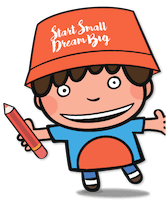With the rising sea levels and depleting of the ozone layer due to excessive burning of fossil fuels, teaching children about the detrimental effects of habitual and impulsive spending is important.
In order to achieve this, children need to develop a habit of making practical uses of recyclables and other existing materials early.
Our N1 children were introduced to recyclables during through art. They were invited to paint and decorate the boxes. After painting, they concluded that the box is a playhouse.
“ Lao Gong! Wo lai le.”
They also learned to shop for essential items using reused cartons, bottles and plastic.
“These items are cheaper today. We must buy more.”
Is this panic buying? 🤣
“I am strong! I can help C carry. It is not heavy.”
Charging his friends $382 for groceries. Times are tough.
The cashier is too busy. He has decided to self-check out instead.
We also noticed that the children invented a game using the empty cans.
In deed, play materials need not be commercialized in order for them to be fun! The value of play is not determined by the cost set by manufacturers. Play is meaningful when children’s play experiences promote real engagement and valuable interactions.
As educators, we recognise our role to mould children as agents of transformation for a sustainable future— Today’s Innovators, Tommorow’s Future.
Stay tuned for more updates on our SSDB project!


















![PCF SPARKLETOTS PRESCHOOL @ CANBERRA BLK 337 START SMALL DREAM BIG- "We Love Green, We Save Green We Use Green" [APRIL- SEPTEMBER 24]](https://media-cache-ap-1.littlelives.com/width/630/height/360/cover/https://littlestories-production.s3.amazonaws.com/media/stories/18206/images/original/image17284874223660.jpg)



